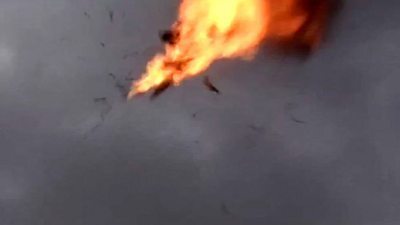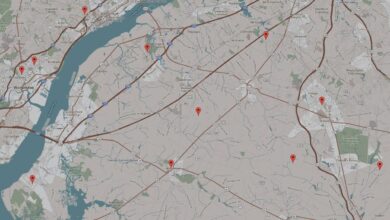
In a concerning escalation of hostilities, Hezbollah launched a significant swarm of attack drones into northern Israel, marking one of the largest aerial incursions by the militant group to date. In a related development, the Israel Defense Forces (IDF) successfully intercepted another unmanned aerial vehicle (UAV) originating from Iraq, further heightening tensions in the region.
On June 20, 2024, the IDF reported that it had engaged and downed multiple drones launched by Hezbollah across the northern border. The coordinated drone attack represents a serious challenge to Israel’s air defenses and underscores the increasing use of advanced unmanned systems by militant groups.
“Today, we faced an unprecedented drone swarm attack from Hezbollah. Our air defense systems were activated, and we successfully intercepted and neutralized all incoming threats,” said an IDF spokesperson. The drones were reportedly armed and aimed at both military and civilian targets, but thanks to the swift response of Israel’s Iron Dome and David’s Sling defense systems, no casualties or significant damage were reported.
The drone swarm, described by military analysts as sophisticated and highly coordinated, underscores the growing capabilities of Hezbollah in terms of aerial warfare. The group, which has been receiving advanced technology and support from Iran, is increasingly using drones as part of its military strategy. “Hezbollah’s use of drones represents a significant escalation and demonstrates their ability to carry out complex operations against Israeli targets,” said a defense analyst. “This is a clear indication of their intent to disrupt and challenge Israel’s airspace and security.”
In a related incident, the IDF intercepted and shot down another UAV that was reportedly launched from Iraq. The UAV was detected as it entered Israeli airspace from the east, prompting immediate action from the IDF. Military sources indicate that the UAV was likely part of a broader strategy by Iran-backed militias in Iraq to test and probe Israeli defenses.
“This is not just an isolated event but part of a broader campaign by Iran and its proxies to increase pressure on Israel,” said an IDF official. “We are seeing coordinated efforts across multiple fronts, aimed at destabilizing the region and challenging our security.”
Israeli Prime Minister Benjamin Netanyahu addressed the incidents in a press conference, emphasizing Israel’s resolve to defend its territory and citizens against all forms of aggression. “Israel will not tolerate any violation of our airspace or threats to our security. We will take all necessary measures to protect our people and ensure the safety of our nation,” Netanyahu stated. He warned that Israel would respond decisively to any further provocations from Hezbollah or other hostile entities in the region.
Hezbollah, for its part, has not officially commented on the drone attack. However, the group has previously stated its commitment to resisting Israeli actions in Lebanon and supporting Palestinian causes. The use of drones represents a significant step in Hezbollah’s ongoing efforts to challenge Israel’s military superiority and expand its operational reach.
International reactions to the drone attacks have been swift. The United States condemned the aggression by Hezbollah and reiterated its support for Israel’s right to self-defense. “The United States condemns the use of drones by Hezbollah to threaten Israel and destabilize the region. We stand with our Israeli allies and support their right to defend themselves against such threats,” said a spokesperson for the US State Department.
The European Union also expressed concern over the escalation, calling for restraint and urging all parties to avoid actions that could lead to further conflict. “The use of drones in this manner is dangerous and provocative. We call on all sides to de-escalate and engage in dialogue to prevent a broader conflict,” said an EU representative.
The incidents highlight the increasing role of unmanned systems in modern warfare and the challenges they pose to traditional defense mechanisms. As militant groups like Hezbollah continue to adopt advanced technology, the need for effective countermeasures and international cooperation becomes ever more critical.
With tensions rising across multiple fronts, the focus now shifts to how Israel and the international community will respond to these emerging threats. The potential for further escalation underscores the urgent need for diplomatic efforts to address the root causes of the conflict and seek lasting solutions for peace and stability in the Middle East.



